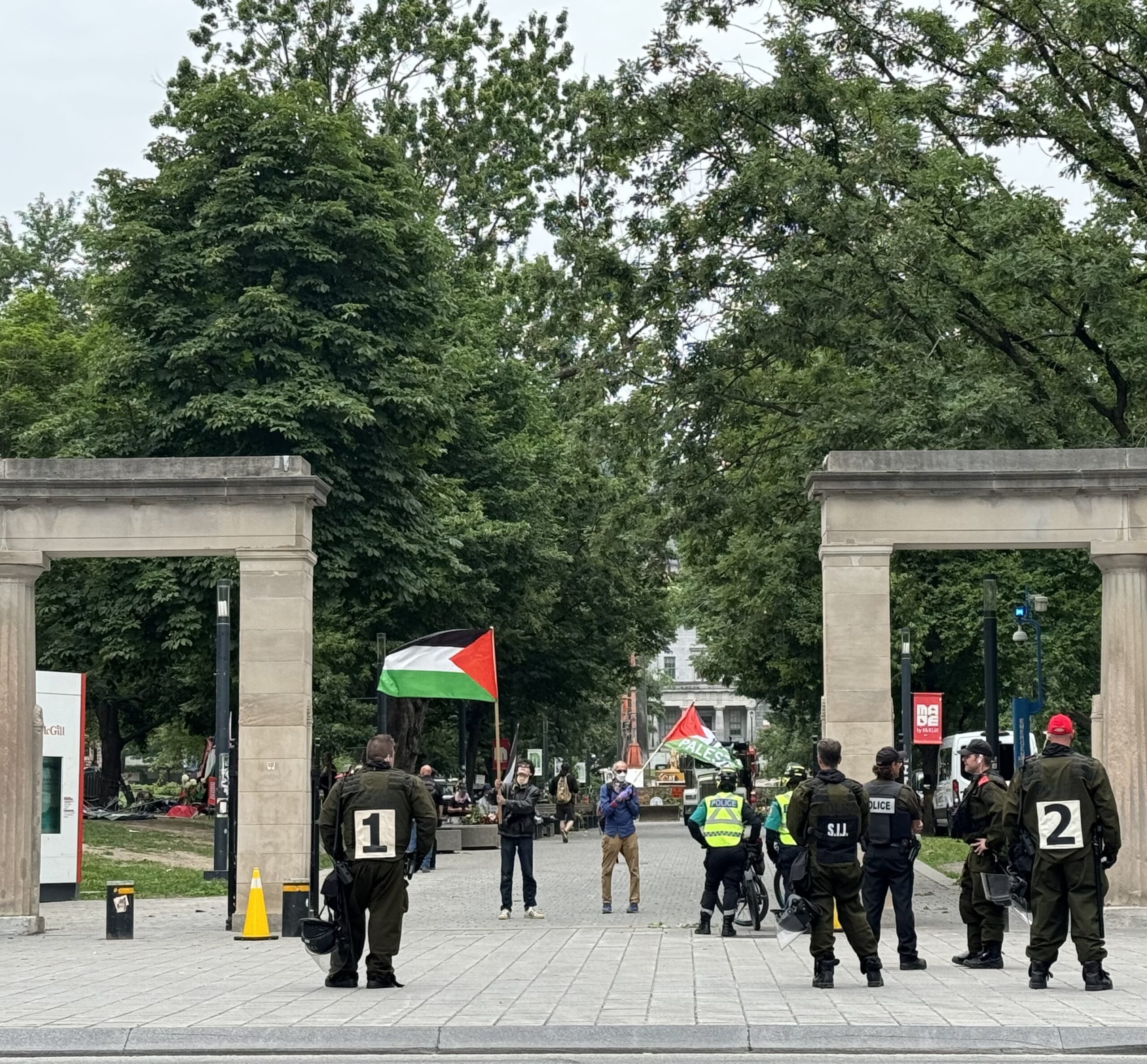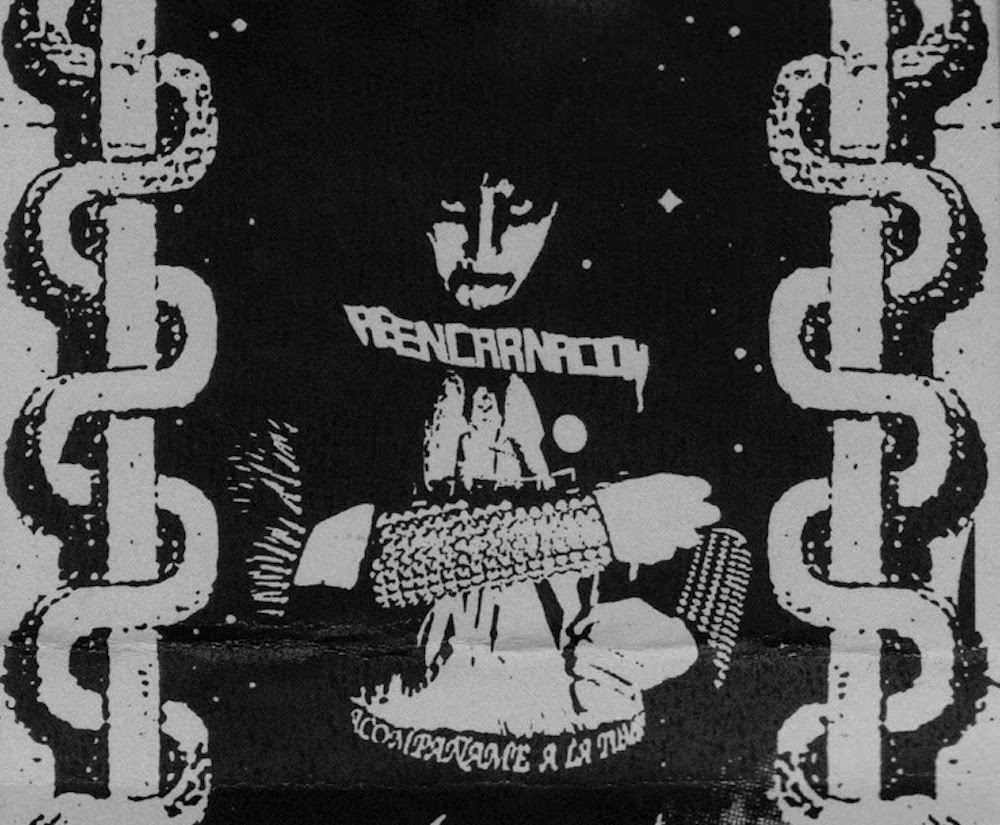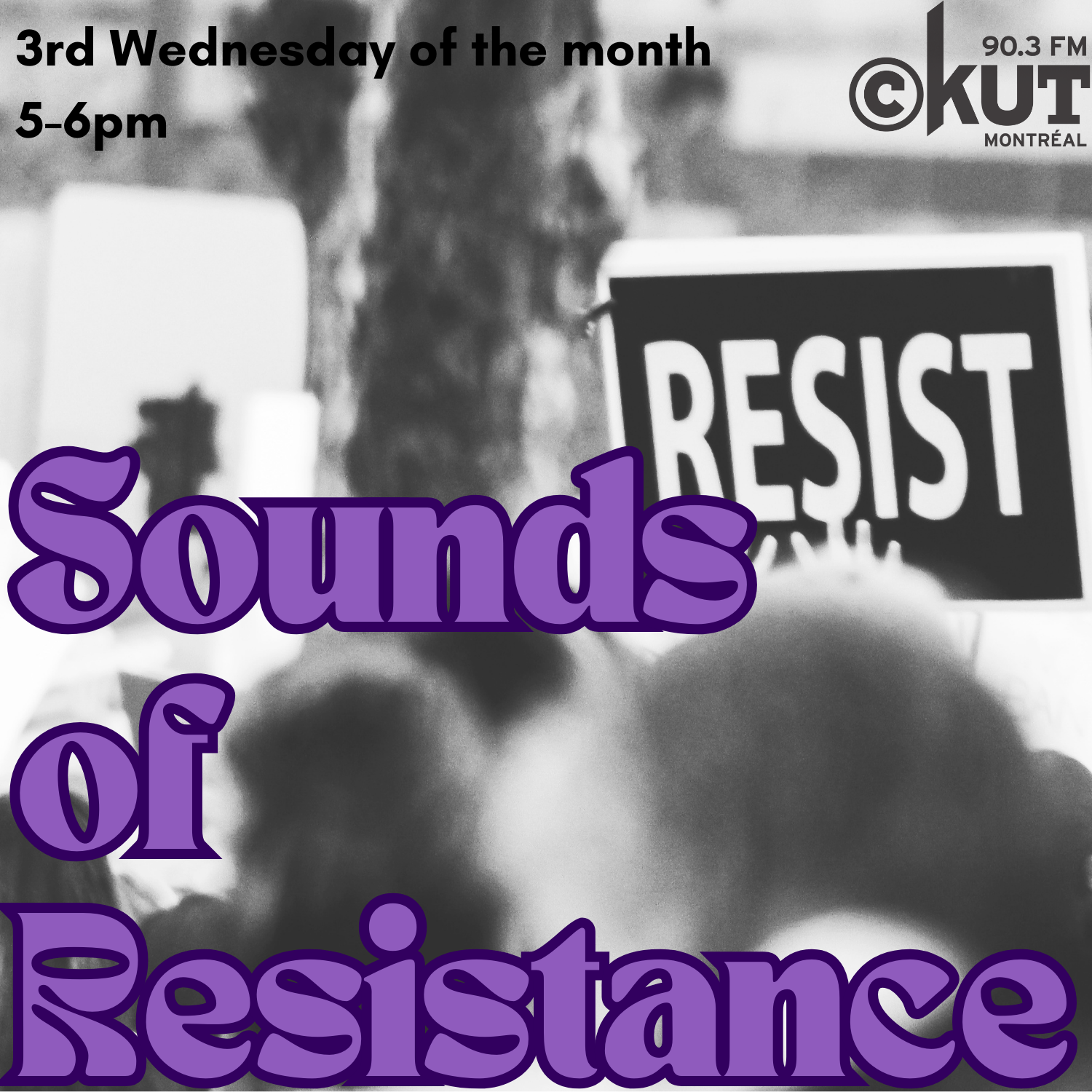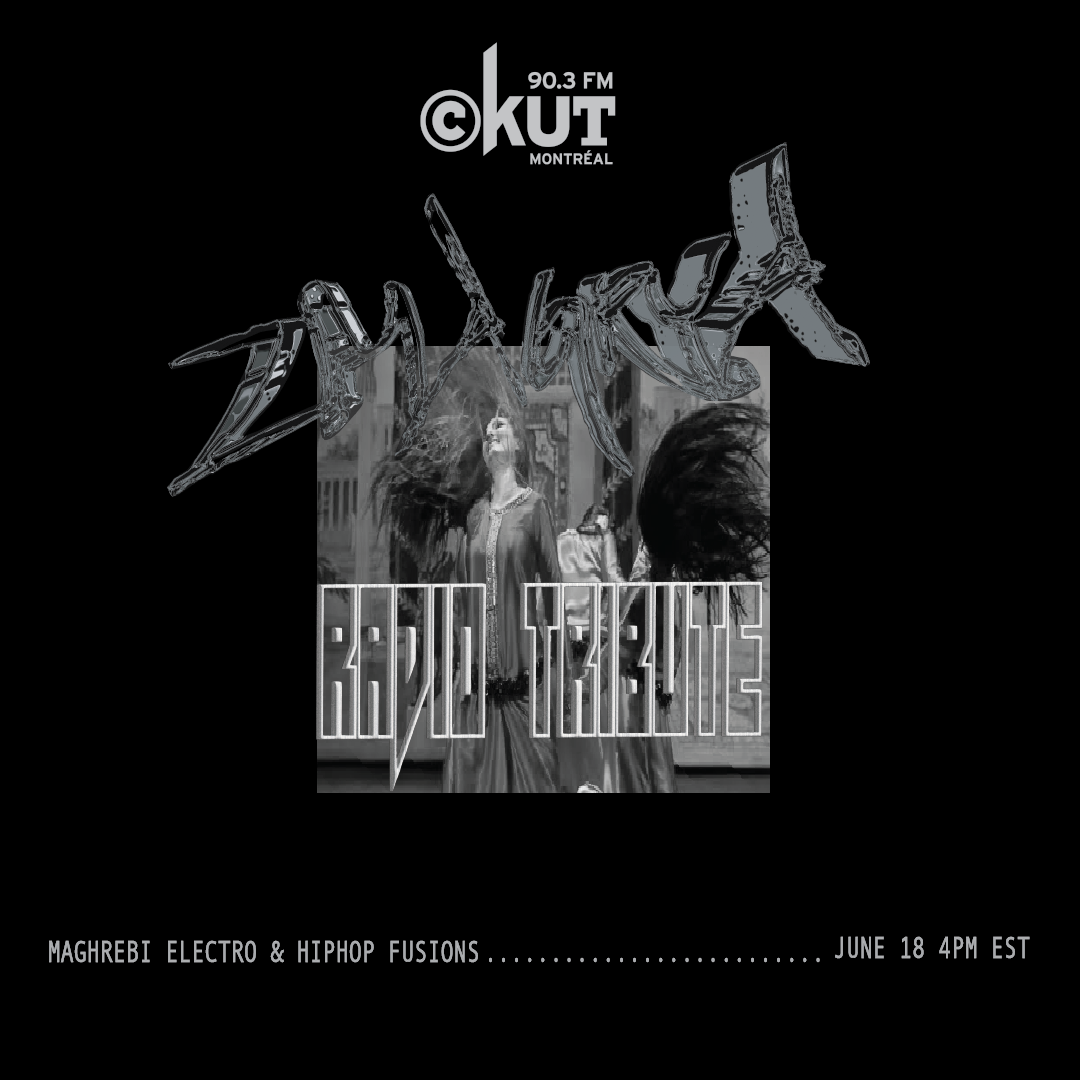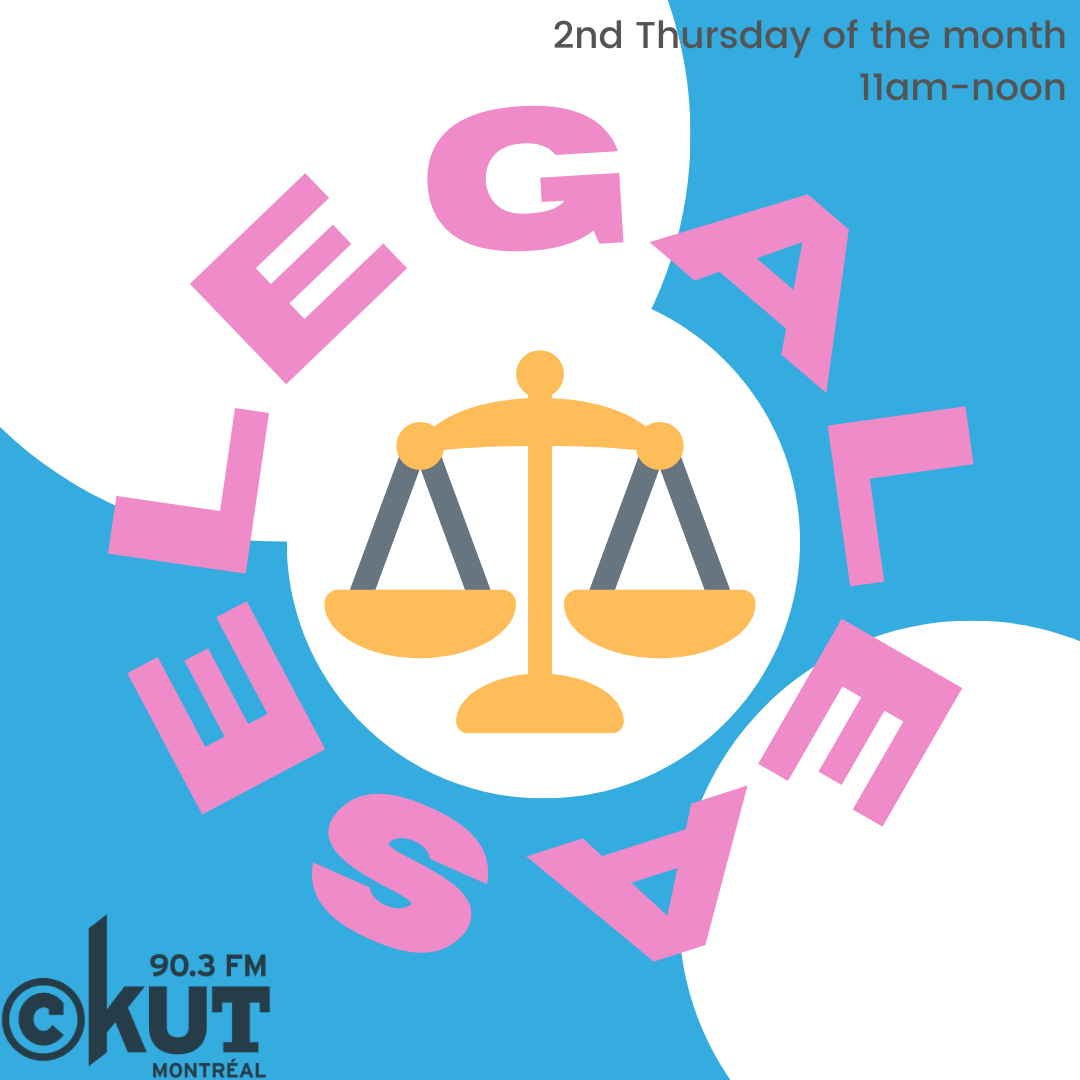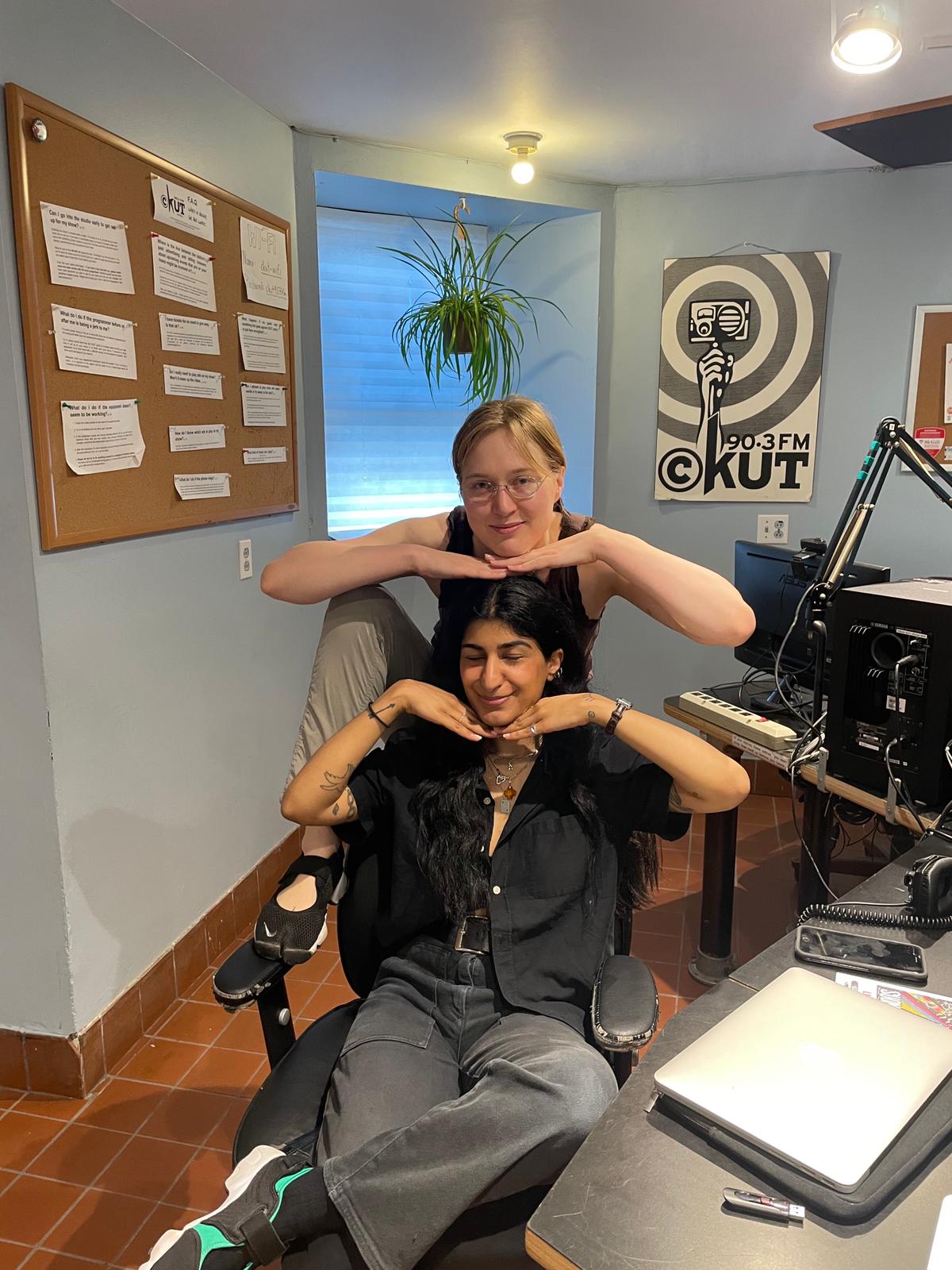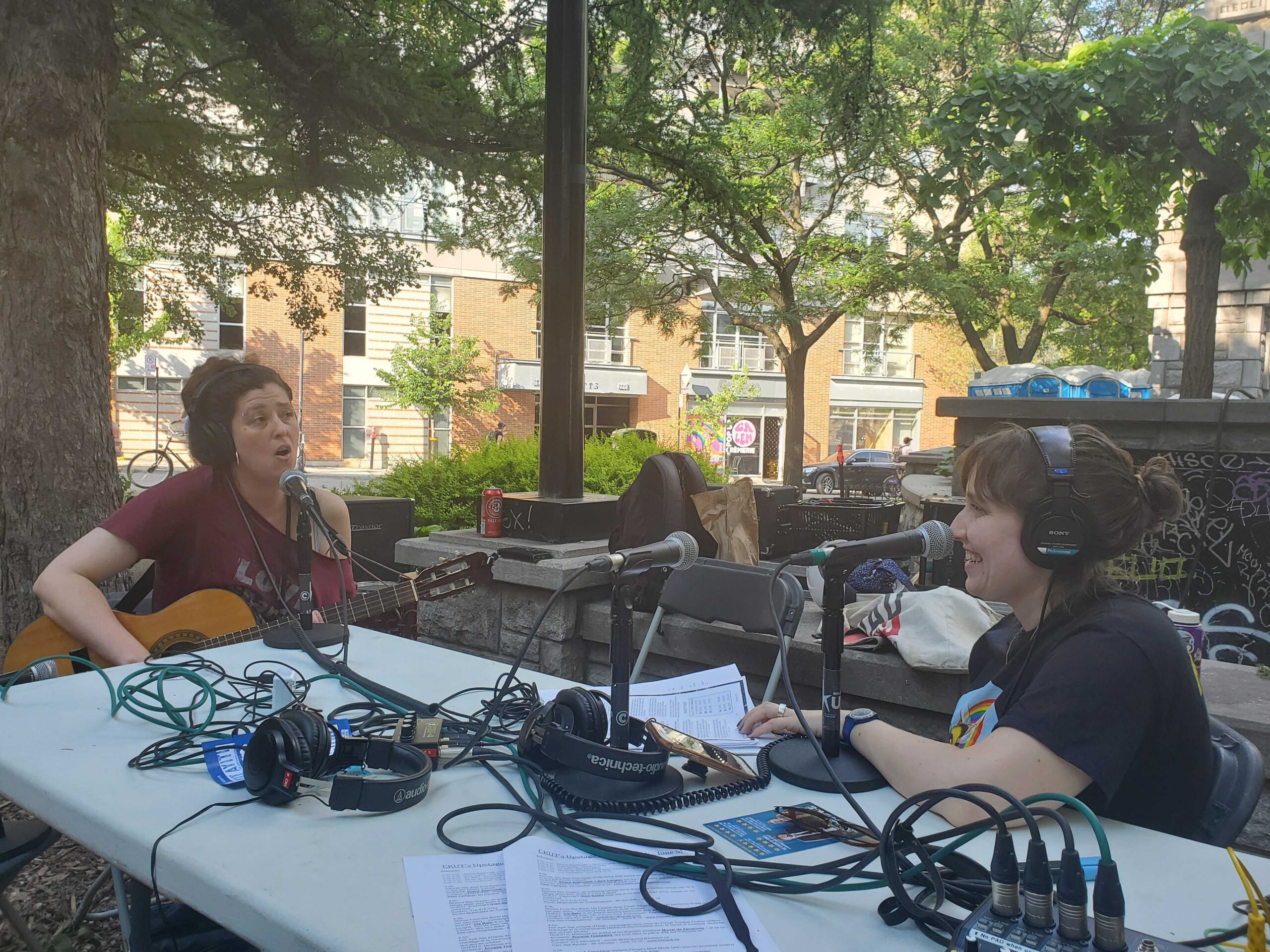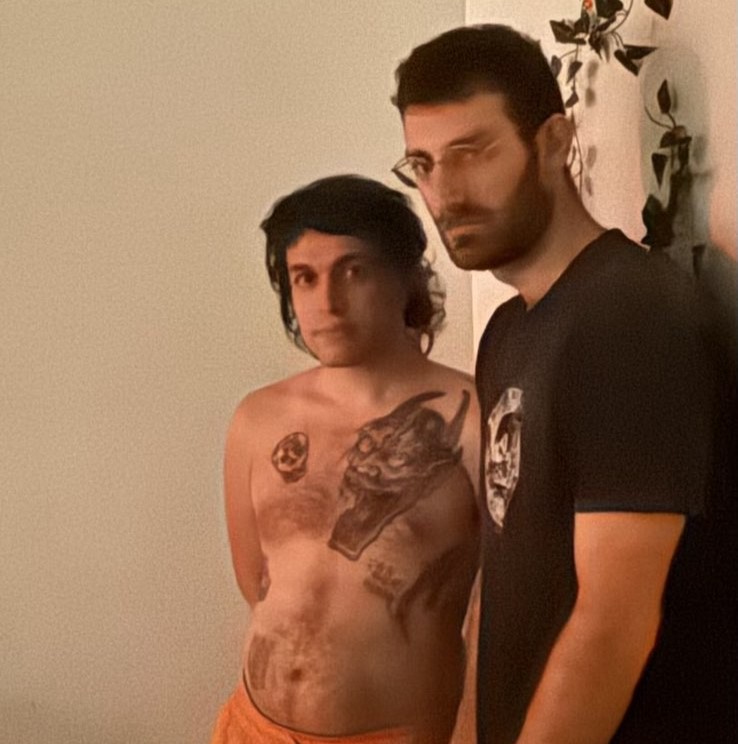Terrorism, Law, and Democracy (2002)
A documentary series examining the consequences of September 11th , 2001 on Canada's legal and political system.
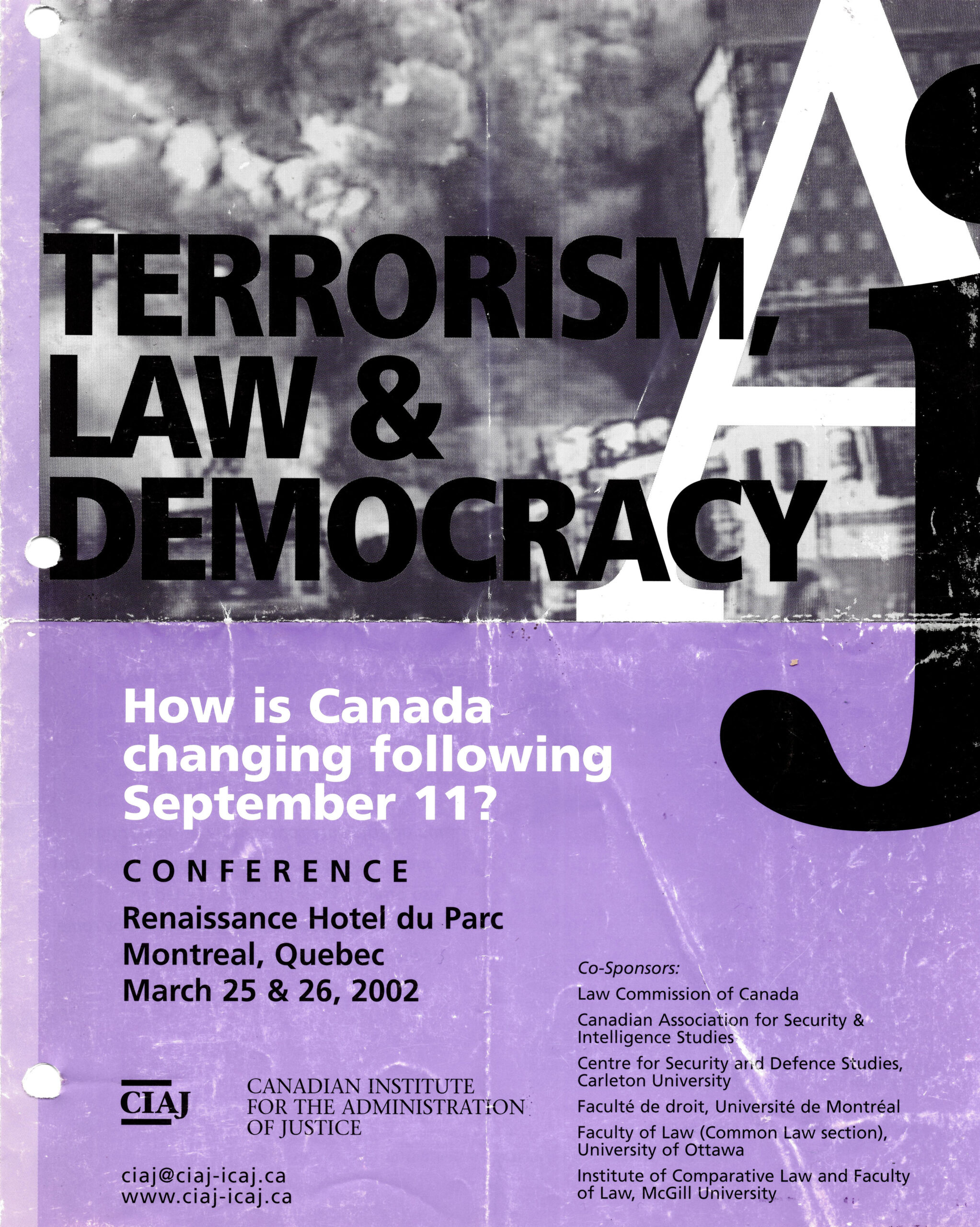
Originally airing on CKUT from July 10 to September 11, 2002, the series considers a broad range of perspectives on the rule of law in terms of the balance between national security and civil liberties, the Canadian and international dimensions of the war on terrorism, and Canada’s enactment of the Anti-Terrorism Act (Bill C-36) and the national Anti-Terrorism Plan.
Based on the proceedings of the conference Terrorism, Law and Democracy organized March 25 and 26, 2002 in Montreal by the Canadian Institute for the Administration of Justice (CIAJ).
Part 1. Terrorism: A Backgrounder
Introduction to the series and the concept of terrorism. Gwynne Dyer on September 11th and the need to balance perspectives in dealing with terrorism. Noam Chomsky, excerpts from The New War on Terrorism: Fact and Fiction, recorded October 18, 2001 (Alternative Radio). The Bush doctrine of American Internationalism: a background for understanding the war on terrorism (State of the Union Address, February 27, 2001).
Part 2. A Consideration of National Security History in Canada Presentation of the conference panel How Has Canada Responded to Serious Threats in the Past? With Professors Reg Whitaker (Political Sciences, York University and University of Victoria) and Desmond Morton (History, McGill University), moderated by Prof. Anne-Marie Boisvert (Law, Université de Montréal). A history of national security crises in Canada including the War Measures Act, the October Crisis, and the Emergency Doctrine.
Part 3. The Impact of September 11th on Canada’s Legal System: Bill C-36 The fundamentals of the criminal law: the Anti-Terrorism Act. Presentation of the conference panel Terrorism and the Criminal Law. Panel: Kent Roach, Richard Mosley, Don Stuart, moderated by Louise Viau. Richard Mosley (Assistant Deputy Minister, Criminal Law Policy and Community Justice, Department of Justice Canada) on the adoption of Bill C-36 and as a valid exercise of preventative power. Kent Roach (Faculty of Law, University of Toronto) examines the structure of the Anti-Terrorism Act and the issues related to the definitions of terrorist groups and activities. Don Stuart (Faculty of Law, Queen’s University) critiques the act as a law & order quick fix and questions the justifications for the new legislation.
Part 4. Canada’s Anti-Terrorism Strategy: Breaking Down Bill C-36 Continued analysis of the Anti-terrorism Act and Canada’s Anti-Terrorism Strategy.
Presentation by Ward Elcock (Director, Canadian Security Intelligence Service) on 9/11, the war on terrorism, and CSIS’ new investigative and preventative powers. Interview with Kevin Thomas (Advisor, Lubicon Cree) on the experiences of First Nations and national security in light of new legislation. Interview with Rocco Gallati (Counsel, Canadian Islamic Congress) provided an important critique before the House of Commons committees reviewing Bill C-36. Interviewed by Sama Elybaria.
Part 5. The Global Impact of September 11th An overview of international initiatives in the war on terrorism since September 11th including a summary of western national legislation on terrorism since 9/11. Peter Leuprecht (Dean, Faculty of Law, McGill University) on the language of war. Kate Martin (Center for National Security Studies, Washington DC) on American national security legislation, the US Patriot Act.Bill Graham (Canadian Foreign Affairs Minister) on the international framework for Canada’s national security legislation and its obligations in the war on terror.Amina Sherazee (Legal Counsel, Canadian Arab Federation) on the impact of 9/11 on immigration and refugee law.
Part 6. The Security State Canada’s state security structure since 9/11 and the United Nation’s international framework for national security including selections from the conference panel Does Bill C-36 give Police Too Many Powers? Panelists: Jean-Paul Brodeur, Paul Copeland, Gwen Boniface, moderated by Susan Eng. Professor Reg Whitaker (Political Sciences, York University and University of Victoria) describes Canada’s security and law enforcement structure. Gwen Boniface (OPP Commissioner and President of the Canadian Association of Chiefs of Police) argues that C-36 provides adequate preventative powers while respecting civil liberties. Paul Copeland (Director, Law Society of Upper Canada) argues that the new policing powers are dangerous and unnecessary. Joanna Weschler (UN Observer, Human Rights Watch, NYC) on the UN’s reaction to September 11th and the effect of its compulsory resolutions on national criminal legislation.
Part 7. Rights and Restrictions: Democracy in the Balance
The constitutional framework for balancing charter rights and national security concerns including presentations of the conference panel Constitutional Democracy: Balancing Security and Civil Liberties Panel: Irwin Cotler, Errol Mendes, Patrice Garant, moderated by Nathalie Des Rosiers. Canadian Charter of Rights and Freedoms and the presumption of innocence.
Errol Mendes (Law, University of Ottawa) considers the constitutional issues related to the legislation and the re-alignment of rights and liberties. Irwin Cotler (Law, McGill & Member of Parliament) how terrorism justifies the new legislation’s departure from the traditional due process model. Canada’s judicial review of the restriction of fundamental rights including the Oakes test. Patrice Garant (Law, University of Laval) on judicial oversight and its constitutional logic. Alan Leadbeater (Deputy Information Commissioner of Canada) examines the shift of power from the citizen to the state operated by recent amendments to the criminal code.
Part 8. Keeping the State in Check
Presentation of the conference panel Watching the Watchers: Democratic Oversight which describes a disturbing lack of oversight and transparency of the exercise of the new powers under Bill C-36. Shirley Heafey (Chair, RCMP Public Complaints Commissioner) on the risk that there is not adequate oversight of new powers. James K. Hugessen (Federal Court of Canada) considers the problems for democratic justice and judgement under new legislation. Bob Rae (former Premier, Ontario and former member of the Security & Intelligence Review Committee) on the problems with oversight of federal agencies and their accrued powers post 9/11. Alan Borovoy (General Counsel, Canadian Civil Liberties Council) on the difficulties posed by legislation for the safeguarding of civil liberties.
Part 9. The Effects of September 11th on the Canadian Community
Changes in immigration legislation and recent jurisprudence and the impact of the war on terrorism on ethno-cultural community groups, human rights, citizenship, and humanitarianism. Dr. Rudhramorthy Cheran (Centre for Refugee Studies, York University) on racism, anti-terrorism, and the universality of human rights. Amina Bahig (Algerian psychologist) on the impact of 9/11 on Arab and Muslim communities in Quebec. Professor Emerson Douyon (Criminology, Laval & Clinique René Laennec) on the criminal justice system and ethnicity. Amina Sherazee (Counsel, Canadian Arab Federation) on immigration and the new Immigration and Refugee Protection Act.
Part 10. Political Action and Globalization in the Face of New Security Measures
The effect of Canada’s anti-terrorism legislation on political engagement and activism, the problematic nature of preventative measures and the limits now imposed on political freedoms. Jaggi Singh (activist) reflects on recent activism in Quebec and the new challenges posed by the war on terrorism. André Paradis (Ligue des droits et des libertés) on the risks that democratic institutions now face with the war on terrorism.
Part 11. Human Rights and the Rule of Law Human rights perspectives on the consequences of September 11th: how the war on terrorism is undermining international humanitarian law and human rights. Kathleen Mahoney (Chair, Rights and Democracy) on the international human rights context and development. Barbara Jackman (human rights and immigration lawyer who argued the Suresh case before the Supreme Court of Canada, its first decision on terrorism since 9/11)
Part 12. Terrorism, Law and Democracy: September 11th, a year in review A review of the series and the consequences of September 11th one year later.
President George Bush on American Internationalism, the war on terror, and the economic rationale tied to the US national doctrine. Rocco Gallati on the threat to democracy that this war represents.
Martin Rudner (Director, Centre for Security & Defence Studies, Carleton University) on the new threat environment post 9/11. The international context for criminal justice and a presentation on the International Criminal Court (ICC). Bill Graham (Canadian Foreign Affairs Minister) on the ICC and international law.
A review of Bill C-36.


